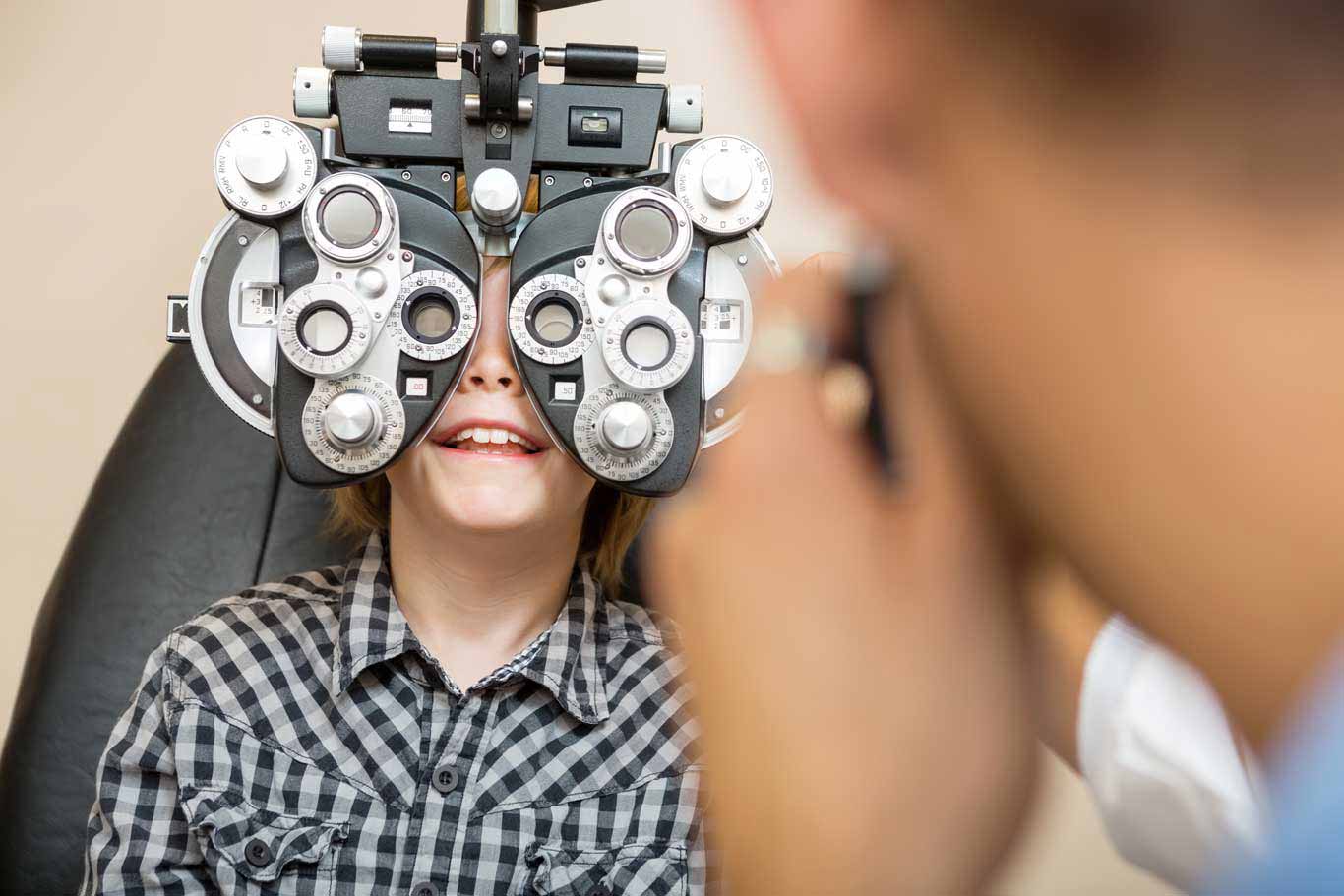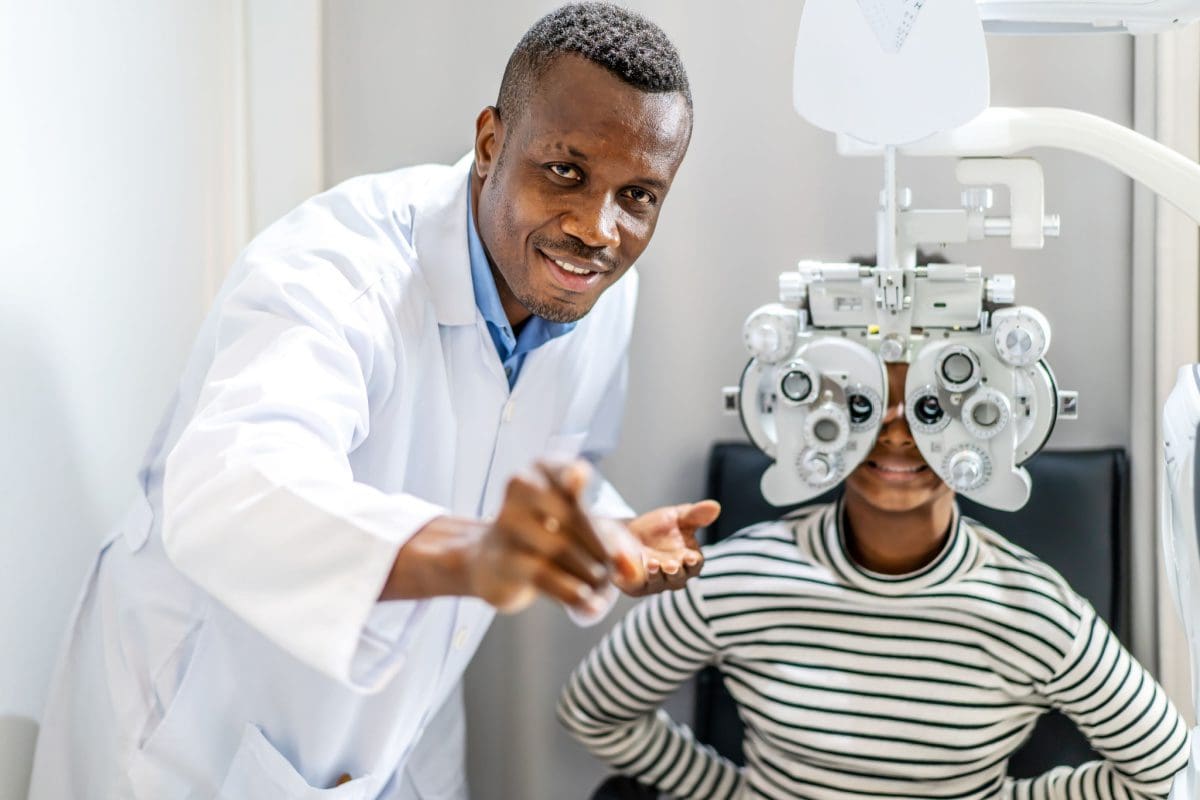The Relevance of Regular Eye Exams: Insights From a Seasoned Eye Physician
Routine eye exams function as a crucial component of healthcare that extends beyond mere vision adjustment. A skilled ophthalmologist can supply understandings right into just how these assessments not only find common eye conditions however likewise expose underlying health and wellness concerns that may or else go undetected. The quiet development of conditions such as glaucoma and macular degeneration highlights the need of early detection. Comprehending the frequency and importance of these assessments can eventually affect one's long-term health trajectory, elevating the inquiry of exactly how usually people ought to prioritize their eye health in the context of general health.
Benefits of Routine Eye Exams
Although numerous people may neglect the importance of routine eye tests, these assessments play a critical function in maintaining total wellness and health. Regular eye examinations offer not just to examine vision however likewise to detect very early indicators of systemic wellness problems, including diabetic issues and hypertension. By determining these conditions at their inception, clients can obtain timely treatments, significantly boosting long-term end results.
Additionally, eye exams can assist in keeping track of existing health and wellness concerns, making sure that any adjustments in vision or eye wellness are quickly attended to (optometrist). The analyses permit personalized referrals pertaining to eyeglasses, way of life changes, and protective procedures versus potential eye stress or damages
Beyond physical wellness, the advantages of normal eye exams include boosting lifestyle. Boosted vision promotes far better efficiency in day-to-day activities, from reading to driving, therefore adding to better self-reliance and security. Inevitably, focusing on eye exams promotes a proactive approach to health management, encouraging people to take fee of their well-being. Regular examinations are an important part of a comprehensive healthcare strategy, making certain that both vision and general wellness are maintained throughout life.
Common Eye Conditions Detected
Normal eye tests are important in detecting a selection of typical eye conditions that can dramatically affect vision and overall health. Amongst the most prevalent problems determined throughout these evaluations are refractive mistakes, including nearsightedness (nearsightedness), hyperopia (farsightedness), and astigmatism. These problems typically materialize as obscured vision and can be conveniently remedied with prescription glasses or contact lenses.
Another common concern is glaucoma, a group of eye illness that damage the optic nerve, frequently linked to boosted intraocular stress. Early discovery is essential as it can prevent irreversible vision loss.
Age-related macular degeneration (AMD) is an additional substantial problem that influences central vision, especially in individuals over 50. Ultimately, diabetic person retinopathy, a difficulty of diabetes mellitus, can result in serious vision impairment if not checked on a regular basis. Through extensive eye tests, these problems can be identified early, permitting timely administration and treatment to maintain vision and enhance high quality of life.
Value of Early Detection
Early detection of eye conditions plays an important role in maintaining vision and stopping significant wellness complications. Numerous eye diseases, such as glaucoma, diabetic retinopathy, and age-related macular degeneration, can progress quietly without visible symptoms in their onset. By the time symptoms manifest, permanent damages may have occurred, causing long-term vision loss.
Regular eye tests promote early diagnosis, allowing for prompt treatment and therapy. As an example, treating raised intraocular pressure can prevent the beginning of glaucoma, while managing blood sugar level levels can significantly lower the threat of diabetic person retinopathy. In addition, problems like cataracts can be efficiently taken care of with medical treatment when determined early.

How Frequently Should You See?
Determining the regularity of eye exams is essential for preserving ideal eye wellness and vision. The basic recommendation for grownups is to have a comprehensive eye examination each to 2 years, depending on private danger elements and age. For people matured 18 to 60, an exam every 2 years is normally adequate if no vision issues exist. However, those over 60 must consider yearly tests, as the risk of age-related conditions enhances considerably.
People with certain risk aspects, such as a household history of eye disease, diabetic issues, or existing vision issues, might need even more regular examinations. Youngsters ought to have their first eye exam at 6 months old, adhered to by extra examinations at age three and prior to getting in college. Normal exams throughout childhood are vital as vision can transform quickly throughout developing years.
Ultimately, the frequency of sees need to be customized to each person's conditions, consisting of way of living, work-related hazards, and any pre-existing eye problems. Consulting with an eye care specialist can supply tailored suggestions, making certain that your eye wellness is frequently kept an eye on and kept.
Tips for Your Eye Exam
Planning for your eye test can enhance the efficiency of the go to and ensure a thorough evaluation of your view website eye wellness. To optimize your time with the eye physician, it is important to collect appropriate info prior to your consultation. Beginning by putting together a list of any type of medicines you are presently taking, consisting of non-prescription medications and supplements, as these can impact eye wellness.
Additionally, record any kind of signs and symptoms you have actually experienced, such as obscured vision, discomfort, or migraines. This info will aid your eye medical professional in detecting possible issues. If you wear glasses or contact lenses, bring them along, also if you don't wear them regularly. This will certainly assist the doctor examine any kind of modifications in your vision.
It is additionally advantageous to have a household background of eye problems available, as genetic aspects can add to your eye health. Finally, consider arranging your examination for a while when you are less rushed, enabling you to ask questions and discuss your worries extensively. By preparing properly, you ensure that your eye examination is productive and that your optometrist has all the needed details to offer the very best care possible.

Conclusion
Normal eye examinations play a crucial function in maintaining both vision and overall health. Ultimately, focusing on thorough eye analyses contributes considerably to the conservation of vision and the enhancement of top quality of life, underlining the necessity of routine eye treatment in precautionary healthcare techniques.
Regular eye tests are crucial go to the website in identifying a range of typical eye conditions that can considerably influence vision and overall health and wellness.Identifying the regularity of eye examinations is crucial for maintaining optimal eye health and wellness and vision.Preparing for your eye exam can improve the performance of the browse through you can find out more and make certain a detailed examination of your eye health and wellness (optometrist). By preparing properly, you guarantee that your eye exam is productive and that your eye physician has all the essential information to provide the ideal care possible
Ultimately, focusing on comprehensive eye assessments adds substantially to the conservation of vision and the renovation of high quality of life, highlighting the necessity of regular eye care in precautionary healthcare methods.